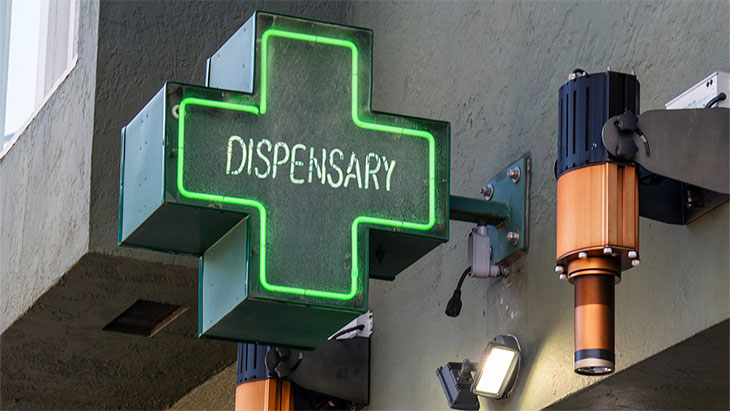
As more states transition from marijuana criminalization to a regulated retail marketplace, struggles over the structure of retail sales markets have become a foremost concern. Inabilities in establishing and enacting clear and timely regulations regarding the application and acceptance process for business licenses have caused significant delays in the actualization of retail markets in many states. Additionally, the issue of social equity in these emerging cannabis markets is also becoming a cause of concern, with multiple states failing to award an adequate percentage of licenses to underrepresented applicants despite promises from officials to provide for greater diversity within the marketplace. Three Northeast states — New Jersey, New York, and Connecticut – are of particular note due to recent developments.
Of these states, New Jersey appears to be the closest to establishing an operational licensed retail market. Voters in the state legalized adult-use marijuana through the passage of Question 1, which took effect on January 1, 2021, with Governor Murphy signing legislation to cease marijuana possession arrests and license retail sales into law in February of 2021.
While the New Jersey Cannabis Regulatory Commission has succeeded in successfully establishing their application processes, and has already begun accepting applications for the growing, manufacturing, and testing of cannabis, retail sales license applications will not be accepted until mid-March of this year. There is no cap on the amount of licenses that can be granted, but supply concerns have arisen as a result of over 70% of NJ towns opting to ban retail cannabis businesses. Commercial space is therefore at a premium, and potential businesses are having trouble establishing roots. This could very well cause a delay in the start of retail sales.
Concerns also exist regarding social equity. New Jersey has had a functioning medical marijuana program for over a decade, but it has a devastating lack of diversity. Of the 56 licenses that have been granted thus far, none have been to Black-owned companies. In a press release, African American Chamber of Commerce of New Jersey President John Harmon said, “Many Black-owned businesses have been trying to get into the cannabis industry since 2012 when cannabis for medicinal purposes became legal in New Jersey.” He continued, “No Black-owned business received a license back then, and none has received a license since the legalization of cannabis for recreational use thus far.”
New Jersey Congressman Donald Payne echoed this concern.
Similar issues are at play in New York. In March of 2021, then-Governor Andrew Cuomo signed the Marijuana Regulation and Taxation Act (MRTA) into law, legalizing recreational cannabis use for adults 21 and over. While the consumption of marijuana is now legal in the state, retail sales have yet to begin as the Office of Cannabis Management (OCM) continues to drag their feet on establishing regulations regarding sales and the licensing process for retailers.
Chris Alexander, the newly appointed executive director of the NY OCM says the agency is hoping to begin accepting licenses late this year. “After that, we will have clarity on when we can expect sales,” Alexander said. “There will be some time needed to allow for the build-out of dispensaries.” He continued to note that there will be a priority for social equity applicants, and that their participation in the market is a leading concern. To help ensure this priority is actually taken, Governor Kathy Hochul released a document in January stating, “In support of that goal, Governor Hochul will create a $200 million public-private fund to support social equity applicants as they plan for and build out their businesses.”
Faith in the timeline is low though, as the OCM has a history of delay and inaction. As recently as September 2021, they missed their deadline to allow medical cannabis home-grows. Regarding retail sales licenses, Michael McQueeny, a New York attorney and marijuana legislation expert said “you probably won’t be able to until 2023 or maybe even 2024,” with established regulations being “a long way off.”
Finally, in Connecticut lawmakers passed SB 1201 last year, signed into law in June of 2021. The measure legalized recreational marijuana for adult-use.
Regulators began accepting licensing applications in early February. Half of all licenses are reserved for social equity applicants from areas disproportionately impacted by prohibition, but this process is seeing its own struggles as regulators from the state’s Social Equity Council at the last minute decided to hire a third party to be responsible for the creation of the review process. Connecticut’s Department of Economic and Community Development plans to have their lawyers assess how many licenses may actually be granted to these applicants, causing confusion and calling into question how many social equity licenses will ultimately be awarded.
Regarding these developments, NORML’s State Policy Manager Jax James said, “Regulators’ ability to provide consumers with a safe and accessible retail market in an expedited manner and their ability to follow through on their promises to provide for a more inclusive industry have thus far been met with mixed success. As more states continue to transition from the unregulated market to a licensed, legal marketplace, it is incumbent upon lawmakers to advance solutions to these issues that continue to plague both consumers and those under-represented communities who wish to participate and compete in this newly emerging industry.”










